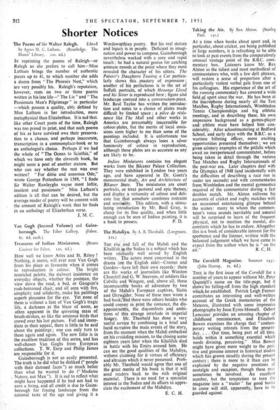THE rise and fall of the Mandi and the Khalifah
*the Sudan is a subject which has been unusually well served by English writers. The actors most concerned in the drama (on the English side)—Cromer and Gordon—have left their own records : the're are the works of journalists like Winston Churchill And G. W. Steevens, of soldiers like Colville and Wingate, and, above all, those incomparable books of adventure by two of the Mandi's European captives, Slatin and OhrwWder. None of these men wrote a bad bookMnd there were others besides who could convey in print the romance, the dis- appointments, the discomforts and ambi- tions of this strange interlude in imperial history. Mr. Theobald has done a very useful service by combining in a brief and lucid narrative the main events of the story, from the moment when the Mandi embarked on his crusading mission, to the closing scene eighteen years later when the Khalifah died in battle with his Emirs around hint. He can see the good qualities of the Mandiya, without claiming for it virtues of efficiency and altruism which it never possessed. Prob- ably Mr. Theobald would agree that one of the great merits of his book is that it will send readers back to the rich original material. There is no need for a specialist interest in the Sudan and its affairs to appre- ciate the excitement of the Mandiya.
E. C. H.


































 Previous page
Previous page